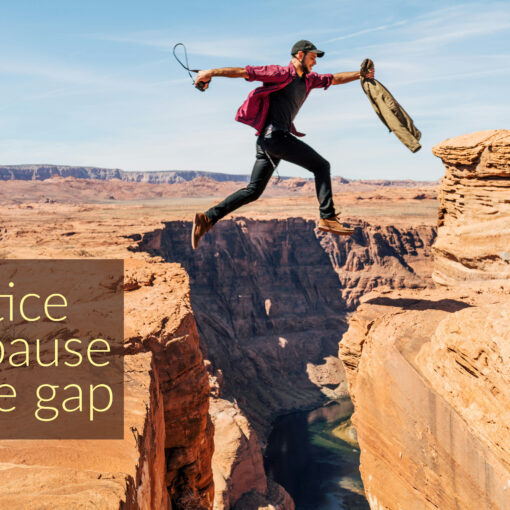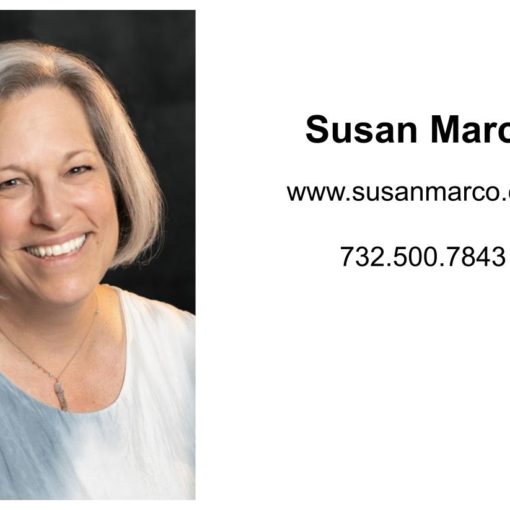Podcast: Play in new window | Download (Duration: 10:33 — 7.7MB)
Subscribe and don't miss an episode! Apple Podcasts | Spotify | Android | iHeartRadio | Deezer | RSS
Wendy and Debbie discuss five stress-inducing behaviors to let go of: making comparisons, multitasking (task switching), over-scheduling, procrastination, and perfectionism. They emphasize the importance of recognizing and addressing these habits to improve well-being. Comparisons can lead to dissatisfaction, while multitasking is inefficient and stressful. Over-scheduling often results in rushing and stress, and intentional pauses are beneficial. Procrastination can snowball into stress, so breaking tasks into smaller steps can help. Perfectionism is unrealistic and self-defeating, and embracing imperfection is key. They conclude by encouraging small, consistent steps for lasting change.
Listen to a meditation by Wendy Calming The Nervous System with the Ocean
Transcription
Edited for readability
Wendy 00:05
We’re going to talk today about a very hot topic. It’s something that has invaded our lives, and it’s called stress. In this episode, we talk about some of the things that we can control.
Debbie 00:19
We are talking about mindless stress. This is stress that you really have some control over – though we don’t always realize it.
Wendy 00:30
Stress is exhausting and it really messes with our well being. Sometimes we just don’t realize the stress has this undercurrent in our life. So we’ll talk about some obvious things that we can control.
Debbie 00:48
We know we can’t control a lot of things that are causing stress. But I’d say there’s a good amount of things we can control that are stress inducing. So let’s throw those away.
Wendy 01:09
Let’s jump in. We’ve got five ideas to share with you. The first one is to:
1. Let go of Comparing
Recognize when you’re making comparisons – because that really gives us agita.
Debbie 01:24
It is natural to compare – it is built into our DNA. But we are smarter than that, and we don’t need to needlessly compare. We really don’t.
Wendy 01:37
So first recognize that you’re comparing and then notice how you feel about it in your body. You know what happens when you begin comparing yourself and how personally belittling it can be?
Debbie 01:53
It can be a never ending cycle of wanting something and not being satisfied with yourself. It’s something that is probably unrealistic in a lot of ways or not necessary. So it’s a moment of mindfulness, of saying, Oh, there I am comparing myself again – not necessary!
Wendy 02:20
The second one we wanted to talk about is this idea
2. Let go of Multitasking or task-switching
Debbie 02:31
An example: if you’re talking to someone on the phone and you’re also trying to read emails.
Wendy 02:38
Good example. It’s like trying to have a conversation with my husband and being on my phone. It’s so rude, and it causes unnecessary stress for the relationship.
Debbie 02:51
And honestly, you’re not really paying attention to both things at the same time anyway. You think you’re being efficient, but you’re really not.
Wendy 03:01
No. There are a lot of studies about how this task-switching idea doesn’t keep you fully present. The thing that was happening before, kind of stays sticky with you for a while, and re-engaging in the work that you’re doing and still having this thing niggling in the back of your head. Say you’ve got a notification in one of your apps or something like that and you interrupt what you are doing to read it. It’s a distraction from what you are focusing on. Not effective, and it can stress unnecessary.
Debbie 03:28
And the world right now is set up for that. You know, it’s like the shiny, sparkly thing all the time. And to be honest, today, we’ve been working for a while now, and we had to refocus ourselves many times. It’s not that we were task-switching as much as we were getting distracted. The mindfulness is staying on course for something you’re trying to get done or finish or pay attention to, and it helps if you’re working with someone who can remind you to stay focused.
The idea is, really be mindful, try to stay focused, or come up with strategies to keep you focused on one thing, and that’ll be a really good, thorough one thing that you get done.
So let’s move on to the third thing, which is something that I have been working on very recently:
3. Let go of Over-scheduling
I used to over schedule myself all the time.
Wendy 04:30
I still do sometimes. We don’t give ourselves gaps in our schedule to get from one place to another OR to literally switch our mindset from point A to point B. We see clients skip a meal or skip working out because of over-scheduling. The workout has to be in the schedule and needs some time before and after to get in and out of your workout gear and cool down before jumping on a Zoom call. There needs to be some space in the schedule – a buffer.
Debbie 05:08
There needs to be space because not having that space is stressful. Rushing around and showing up late is really stressful. I think this comes from our culture that says being busy and being over committed is successful or an illusion that you are getting stuff done – but it’s kind of the opposite.
And you know what else it does?
Rushing around means that you’re not thinking about things deeply. That means you’re not reflecting about life and events. It makes time go really fast, like, oh my gosh, where did the time go? How many times have you heard that phrase or, oh my gosh, this week went so fast, I feel like it was just Monday, and now it’s Friday. I don’t want my life to go fast. I want it to slow down and the only way to do that is to put spaces in my schedule.
Wendy 06:13
Intentional pauses really are a gift to our central nervous system. It gives our nervous system a chance to reset, and that’s really healthy for us.
Debbie 06:25
We promise you’ll feel so much better if you do this. I am proof. I feel so much better these days that I don’t over-schedule myself.
Wendy 06:36
The next one
4. Let go of Procrastination
We often overthink the thing we are procrastinating, and usually, not always, but usually, once you do the thing, it’s like, Oh, that wasn’t as big of a deal as I thought it was going to be. And procrastination really just snowballs us into a worried state of stress. And if you know you’ve got to get something done, and it’s hard figuring out a good time of day to tackle a hard thing that is important. Say, if you’re more of a morning person, schedule for the morning, if you’re more of an evening or afternoon person, schedule that thing then – and put it on the calendar because you’ve made a commitment.
Debbie 07:32
And what we always talk about with all kinds of habits and what could help with procrastination is – breaking that big thing up into baby steps. How can this big project that I’m procrastinating and I’m so overwhelmed by it, and I keep pushing it back because it’s too big, if you actually break it down and do little by little, it’ll start getting done before you know it. So think about that, how can you do that? Because having something hanging over our heads is just a stress we don’t need.
Wendy 08:06
Little by little – great idea.
Debbie 08:10
And finally, our last thing that you can let go of, and everyone needs to let go of is
5. Let go of Perfectionism
It doesn’t even exist.
Wendy 08:19
No, no one is perfect, that is unrealistic. Being able to be good enough is really, really important to reduce our stress.
Debbie 08:32
But, you know, the thing about perfectionism is that when you set yourself up like that, it’s not only unrealistic, what it ends up doing is showing you how to disappoint yourself over and over and over again. And so you think you’re being a perfectionist, but what you’re really doing is beating yourself up.
Wendy 08:53
This is where we share the idea of grace.
When any of these five things show up, you catch yourself comparing, multitasking or task-switching, or over-scheduling yourself, or procrastinating, or perfectionism. This is where grace can step in and say, Oh, I’m recognizing that I’m stepping into this stressful phase or stressful situation, and I can truly let it go. I don’t have to stay there.
Debbie 09:27
That’s what’s so beautiful about these things – you can let it all go, and you’ll feel so much better.
So that wraps up this episode of Navigating Nourishment. We hope you find our discussion helpful and inspiring.
Wendy 09:42
Remember your health and wellness journey is a marathon, not a sprint. Remember small, consistent steps over time can lead to significant, lasting changes.
Debbie 09:51
If you enjoyed this episode, please share, subscribe, rate and leave us a review, because your feedback really helps us reach more people.
Wendy 10:01
You can follow us on social media for more tips, updates and inspiration. You can find us on Facebook and Instagram at Nourish Coaches.
Debbie 10:09
And for more resources, visit our website at nourishcoaches.com and there you’re going to find some show notes, additional articles, links to other shows and podcasts.
Wendy 10:21
Thanks for joining us today. Stay nourished, stay healthy, and we’ll see you next time on Navigating Nourishment.
If you do a lot of comparing, you might want to also read this blog – Judgement is a Curious Thing






